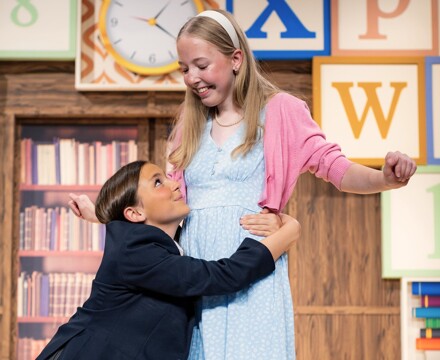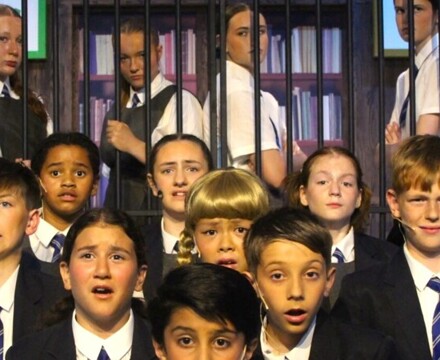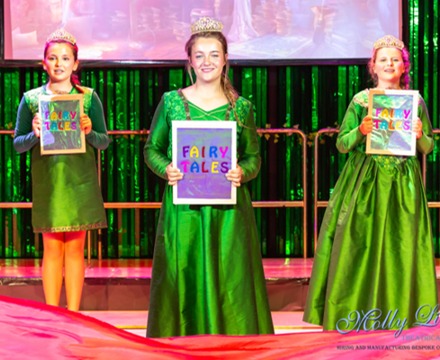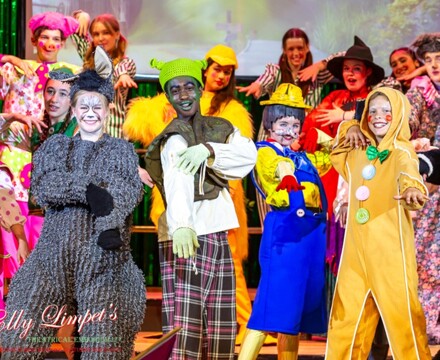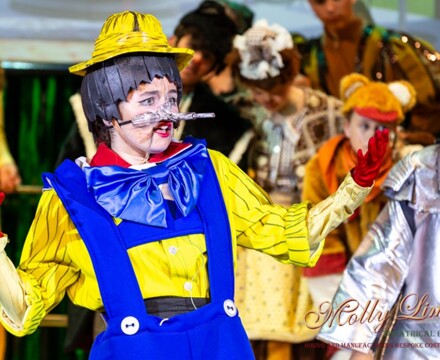
Drama
Back“Actors are agents of change. A film, a piece of theatre, a piece of music or a book can make a difference. It can change the world.”
Alan Rickman
Staff members
Mrs K Wilson (Head of Department and Subject Lead for A2B)
Mrs C Leek
Subject Definition
Drama is an exciting performance medium, in which imagination and creativity are nurtured to uplift, enrich, entertain and educate.
Subject Purpose
At Woking High School, Drama is a Creative Arts subject that explores the history of theatre, performance skills and evaluation through Devising, Improvisation, Script Interpretation and Performance Analysis. This study of Drama is fundamental to students achieving great things, because every child has a talent. Drama is an area in which any individual can experience success and feel proud of themselves, whether it be through excellence in performance, production or developing confidence.
The Drama Department endeavours to inspire passion, creativity, confidence, inclusivity, leadership and resilience. Delivered by subject specialists with a love for the defined Drama curriculum, the programme at Woking High School is designed to support students in their academic development, their appreciation of the Arts, and of paramount importance, to shape the whole person, supporting our young people with the development of skills for life.
We strive to ensure that students enjoy and value their Drama experience at Woking High School, and take a pride in all aspects of their learning journey.
KS3 Overview
At Key Stage 3, students explore the foundation skills of Drama & Theatre which will prepare them for study at a higher level.
Students learn how to devise, improvise, interpret script, perform and evaluate, as well as develop an array of knowledge and understanding of practitioners, styles and playwrights.
KS4 Overview
GCSE Qualification Information
Course title: Drama (9-1)
Exam board: AQA
Course code: 8261
At Key Stage 4, we strive to inspire emotional and intellectual response through performance and design. Students continue to develop their skills in devising, improvisation, script interpretation, performance, design and evaluation, as well as develop an array of knowledge and understanding of practitioners, styles and playwrights.
The course assessment is divided into three components:
Component 1: Understanding Drama (Written Exam / 40% of GCSE). The students are assessed on their ability to demonstrate their Knowledge & Understanding of Theatre through the exploration and response to a Set Text (‘Blood Brothers’), and through Analysis and Evaluation of Live Theatre. For the Live Theatre component, students are required to see a professional production. Formal assessment takes place in a written examination at the end of the course in Year 11.
Component 2: Devising Drama (Non-Exam Assessment / 40 % of GCSE). The students are assessed upon both the process of creating Devised Drama (recorded in a Devising Log), and the final Performance of the Devised Drama. The Log is worth 60 marks, and the Performance is worth 20 marks.
Component 3: Texts in Practice (Performance Exam / 20% of GCSE). The students are assessed on the performance of two extracts from the same play, which is assessed by an external examiner.
| Subject Documents |
|---|
| KS3 Overview Drama |
| KS4 Overview Drama |

